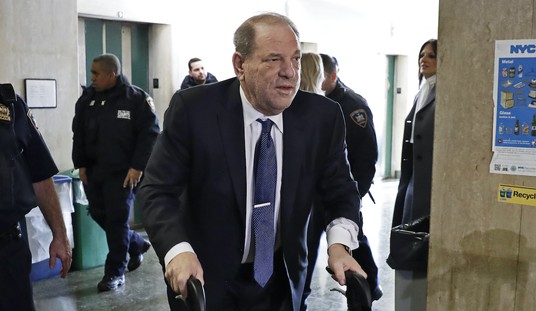Mark Steyn notes my PJM colleague’s passing today:
Barry Rubin, a great strategic thinker and cartographer of the emerging post-American world, died today in Tel Aviv. I read him regularly and cited him in After America re the collectively insane urge of almost everyone Nidal Hasan encountered as he wafted upwards through the US Army to look the other way and not see what was staring them in the face:
As the writer Barry Rubin pointed out, Major Hasan was the first mass murderer in US history to give a PowerPoint presentation outlining the rationale for the crime he was about to commit. And he gave it to a roomful of fellow army psychiatrists and doctors — some of whom glanced queasily at their colleagues, but none of whom actually spoke up. And, when the question of whether then Captain Hasan was, in fact, “psychotic”, the policy committee at Walter Reed Army Medical Center worried “how would it look if we kick out one of the few Muslim residents”.
I remember when I read Rubin’s line about the PowerPoint presentation. Many of us had been groping in the same direction, but he was the one who came up with the perfect, piercing image for the madness that was going on. He did that a lot, right up to the end. Rest in peace.
For much more on Rubin, don’t miss encomiums elsewhere at PJM from Roger L. Simon, Patrick Poole, and David Swindle.
Further on in Mark’s column today, he writes:
In the midst of death there is life – or there is until Al Gore shows up. The former vice-president took part in one of those interminable Davos snoozefests on climate change. There were the usual not so subtle hints to get in line: “We need,” he said, “to put a price on denial in politics.” From my own experience, the price – at least in terms of legal bills – is already quite steep, but no doubt more can be done. Gore’s other big idea was a call for “fertility management” in the Third World – ie, he wants rich white people to ensure that blacks breed less. Is there nothing environmentalism can’t make respectable?
In his interview with me earlier today, Fred Siegel mentioned how ’70s-era environmentalism helped to provide a new sheen on ’20s and ’30s-era “Progressive” eugenics, despite their centrality to the Holocaust:
MR. DRISCOLL: So how do we get from the era of the drug culture to the radical environmentalism that came to dominate the left beginning in the early 1970s?
MR. SIEGEL: We get there, partly through Rachel Carson and her novel about environmentalism. Partly through the sense that Vietnam is a product ‑‑ is a product of American rationalism ‑‑ technocracy and is a product of the American middle class. The idea that Kennedy got us into Vietnam, that too, is wiped aside.
And environmentalism becomes the modern form of eugenics. What I mean by that is, early 20th century eugenics is sort of associated with H.G. Wells. It’s about direct population control. We want to breed the right kind of people.
The eugenicists of the 1970s, those associated with environmentalism, they want ‑‑ they want to reshape the consumption habits, the living habits, of the American middle class. They see the American middle class as the problem, as did Wells. But they’re not so much concerned about how they ‑‑ how to breed the middle class, as to ‑‑ as to constrain the middle class habits of consumption and the way they live.
Or as Mark himself has written, “The ecochondriacs mean it: This’d be a pretty nice planet if we didn’t live here.” And whether the year is 1933, 1973, or the present day, they’re not ashamed to admit it.
[jwplayer config=”pjmedia_eddriscoll” mediaid=”70562″ width=”590″ height=”360″]









Join the conversation as a VIP Member